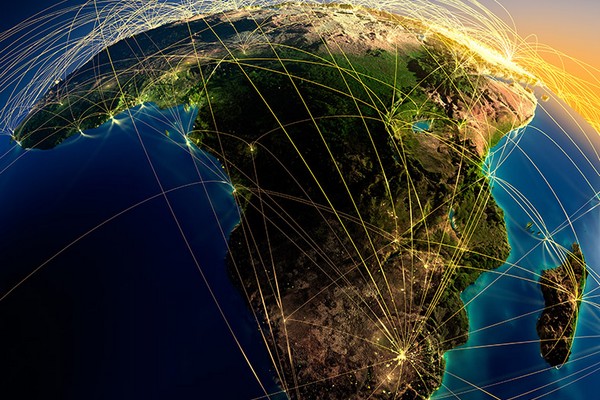[ad_1]
We are entering interesting times in the ESG and climate change debate.
Africa has the potential to help drive the green industrial revolution
On one side are the deniers and anti-woke brigade. Some of these people are senior political leaders who can drive legislation to “protect oil and gas interests”. On the other side are those that see the ESG opportunity, which include some of the world’s largest financial services companies.
Texas’s governor Greg Abbott recently passed legislation that limits or bans state investments using ESG criteria when looking to generate the highest returns. For example, Texas introduced two laws in 2021 that prohibit those banks that “boycott” oil and gas companies or “discriminate” against firearms from government contracts, according to a Bloomberg report. Florida’s Ron De Santis has taken onto himself the mantle of America’s ‘Anti-Woke Warrior’, wanting to make it illegal for Florida pension fund managers to even think about ESG.
This appears to be a classic case of cutting off your nose to spite your face!
However, the finance industry is kicking back, pointing out that as well as being anti-capitalist, anti-public opinion and anti-positive for humanity, keeping ESG funds out of people’s pensions and investments could cost them a lot of money. According to Bloomberg, returns from ESG stocks have beaten those from fossil-fuel stocks since 2014.
The finance industry is starting to tell politicians where to stick it.
According to Fed economist Ivan Ivanov and professor of finance Daniel Garrett in their paper Gas, Guns and Governments, Financial Costs of Anti-ESG Policies, Texas’s anti-ESG legislation resulted in the “abrupt exit” of five of the most significant bond underwriters from the state – Citigroup, JPMorgan Chase, Goldman Sachs, Bank of America and Fidelity Capital Markets – with the cost to taxpayers running into the hundreds of millions through diminished competition and lack of access to the “national bond placement networks”.
I hope that the finance industry is driven by people and planet objectives rather than simply profit, but once again, it demonstrates why the finance industry really matters as part of driving an ESG agenda and, in particular, its importance in the climate change debate.
I wanted to explore potential ESG investments. I wondered what real potential for making money the anti-ESG, anti-woke community may be missing through their legislation. It turns out quite a lot… which brings me to a conversation I had with Hubert Danso, CEO and chairman of Africa Investor (AI), an Africa-focused institutional infrastructure investment platform.
According to Hubert, over 30 countries have made net-zero commitments and aspirations. This means that many in the investment community, particularly pension funds, sovereign wealth funds and institutional investors, see the climate agenda as probably one of the best investment opportunities of a lifetime.
Ultimately, they want to invest in projects that can deliver growth and good returns and can have a very positive impact on the environment as a consequence.
Hubert’s focus is Africa. He explained that African climate-focused projects are now called Nationally Determined Contribution (NDC) projects. These projects governments have committed to as part of the COP process. Africa has $3 trillion worth of NDC projects to deliver by 2030.
To put that in perspective, the world has only been able to mobilise $2.8 trillion in the last 20 years for renewable and renewable energy-related investments from the year 2000 to the year 2020.
Africa has a herculean task in mobilising more in the next eight years than the world was able to mobilise in the last 20 years, especially considering that of that $2.8 trillion, Africa only got 2%.
Africa has vast potential with lots of sun and wind. In February, I stood on the shores of the Red Sea in Egypt, facing west, knowing that I could walk for 4,000 miles across the desert before I reached the Atlantic. That is a lot of solar potential.
According to Hubert, Africa has 180,000 terawatt-hours of technical wind capacity annually, enough to electrify the continent 250 times over.
Marry that with the energy needs of the rest of the world. It is possible to see Africa being a net exporter of this natural capital. “It’s time for innovation, private sector thinking and private capital mobilization,” says Hubert.
Hubert also talked about the African Green Infrastructure Investment Bank (based on a model borrowed from the UK, which established the UK Green Investment Bank when the government realised that they didn’t have enough capital to be able to fund the offshore wind market).
Work has started with African governments to create that enabling legal and regulatory framework to accomplish two essential things:
- The ability to mobilise capital at scale.
- The ability to deploy that capital at speed.
Africa has the potential to help drive the green industrial revolution, offering incredible investment opportunities. Structures are emerging that will provide the framework to ensure quality and control.
The belligerence of the anti-woke community really could mean missing out on this – a real world of opportunities!
About the author
 Dave Wallace is a user experience and marketing professional who has spent the last 25 years helping financial services companies design, launch and evolve digital customer experiences.
Dave Wallace is a user experience and marketing professional who has spent the last 25 years helping financial services companies design, launch and evolve digital customer experiences.
He is a passionate customer advocate and champion and a successful entrepreneur.
Follow him on Twitter at @davejvwallace and connect with him on LinkedIn.
[ad_2]
Image and article originally from www.fintechfutures.com. Read the original article here.

